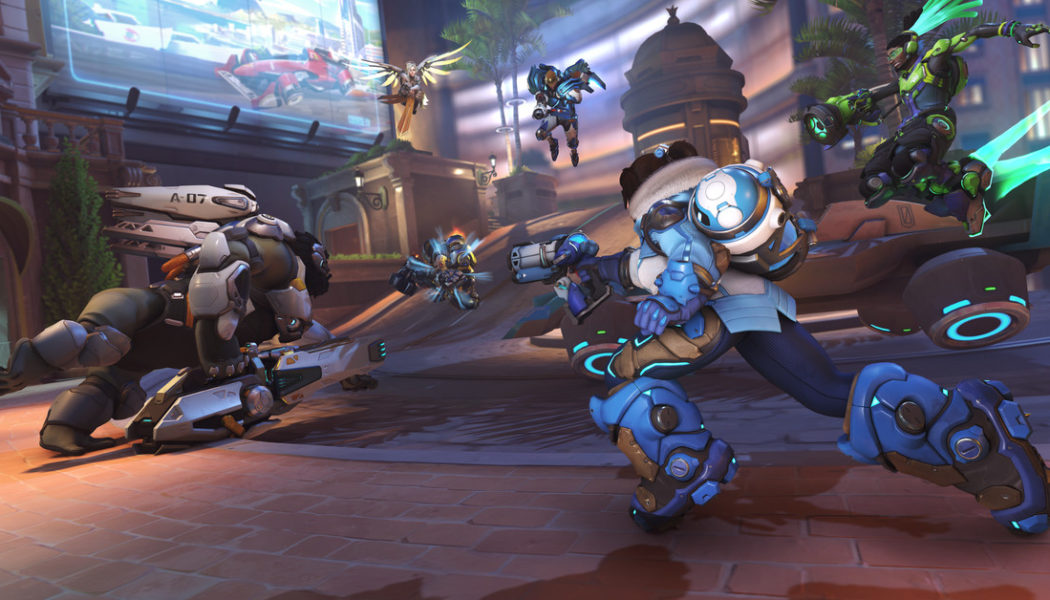
The San Francisco Shock are perhaps the winningest team in the Overwatch League’s short five-year history. They are the only team who can boast back-to-back grand finals victories. And during Stage 2 in 2019, the League had to invent a new classification of excellence when the Shock not only never lost a game, but they never dropped a single map, sweeping all their opponents in what was dubbed the “golden stage.” And even though, last year, they never came close to the kind of dominance they enjoyed in 2019 and 2020, they are still a force to be reckoned with and a perpetual pain in my side the way the Yankees are to regular baseball fans.
Which makes the Shock’s embarrassing loss to the Los Angeles Gladiators over the weekend one of the sweetest things I’ve watched in a while — and definitely my favorite moment of OWL Season 5 so far.
All last week, the League ran its first cross-regional tournament of the year — the Midseason Madness. It was a long week of matches, featuring some of the scrappiest Overwatch I’ve seen this season. Up until this point, Season 5 had been kinda dull with matches that were often total blowouts. But for the Midseason Madness, damn near every match was a close 3-2. Broadcasts that typically clocked in around four to five hours were running eight to nine hours long, lengthened with an additional fourth game over the usual three and the fact that a lot of games went down to the wire. It was a tough slog to watch, especially because my Shanghai Dragons often played the later matches in the day.
The final match in this long week of a tournament was between the Shock and the Gladiators, teams that were the number one and two teams, respectively, in the Western region. For the season so far, the Shock were looking like they were back to their old selves as they are currently undefeated in the regular season. But that perfect record didn’t translate to a win during the first tournament of the year… nor in this one.
In fact, from the start of the final match, it seemed like the Glads had them cold. The Gladiators quickly put down the Shock 3-0, with the first one to four maps the winner. It seemed like the match would be a decisive 4-0 victory for the Gladiators — a rare sweep in a tournament that’s been nothing but hotly and closely contested matches. But veteran Overwatch League fans know to never declare a 4-0 prematurely, especially against the Shock.
Well, congrats on winning Midseason Madness, Gladiators. There’s no way Shock comes back from an 0-3.
— London Spitfire (@Spitfire) July 24, 2022
This tongue-in-cheek tweet from the London Spitfire (a team that’s having its best season ever and was cruelly and unfairly knocked out of the tournament by the weaker Florida Mayhem) is both a curse and a warning. The Shock are the masters of the reverse sweep, and, true to form, shortly after this tweet, the Shock clawed out of their 0-3 hole, winning the next two maps in a row.
By that point, I was apoplectic. It was already late Saturday night. I was tired and wholly unenthused about the prospect of watching a best of four go to map seven. I love good, competitive Overwatch, but sometimes a bitch just be tired.
The sixth map of the match was an escort map in which teams compete to push a payload the furthest. Both teams completed the first round of pushing, with the Gladiators finishing with a longer time bank. The Shock made good use of their inferior time allotment and did an excellent job on defense, eating up the Gladiators’ time advantage. But then the wheels came off the payload.
The map was in overtime, and for payload maps, that’s a critical time. If you’re an attacking team and you step away from the payload, it will stay put, time will run out, and you will lose. If a defending team steps away from the payload, the attacking team will be able to push it to wherever the payload stopped the previous round, and the defenders will lose.
For the final round of this final map, the Shock were the defending team. All the Shock had to do to potentially win the map and take it to a final map seven was to stay on the payload and win the fight. Here’s how that played out.
[embedded content]
If you’ve watched Overwatch League for any length of time, you know what this is. That is a C9 — a colloquial term that means a team lost a map because they weren’t playing the objective. It’s so named after the esports organization Cloud9, which committed the original sin way back in the sorely missed days of the Overwatch Apex tournament.
It is the most ignominious way a team can lose. It’s like tripping at the finish line of a race because you, in your hubris, didn’t think you needed to tie your shoelaces or standing stock still as a tennis ball whips by you when your opponent has the advantage. And it’s the funniest damn thing I’ve seen in an Overwatch League match ever. Imagine fighting so hard to come back from an 0-3 deficit, only to lose, not because of the strength of your opponent but because of your own unfortunate and easily preventable actions. I couldn’t believe it. Nor could Overwatch League Twitter.
It is the most Midseason Madness thing in the world…nay, the most Overwatch League season five thing in the world…for this banger match to end
IN A
C9UNREAL
— Liz Richardson (@mizliz_) July 24, 2022
It HAD to end in a C9. LMAO
Unreal tournament, congratulations @LAGladiators well deserved. Back to back titles!
— Jack Wright (@JawsCasts) July 24, 2022
Of course, there’s no way to know if the Shock would have won if they hadn’t committed the greatest sin in competitive Overwatch, and I have nothing but sympathy for the Shock’s fans because, whew, it’s never fun to see players sad like that.
But that’s Overwatch League, baby. There’s a running joke that the League is scripted with writers planning how teams win or lose. The fact that the San Francisco Shock, the gods’ most favored Overwatch team, lost via C9 when they were mere moments away from the most impressive comeback in League history definitely takes it from joke to conspiracy theory levels. It’s moments like this that remind me why I love this League — the stories write themselves.








